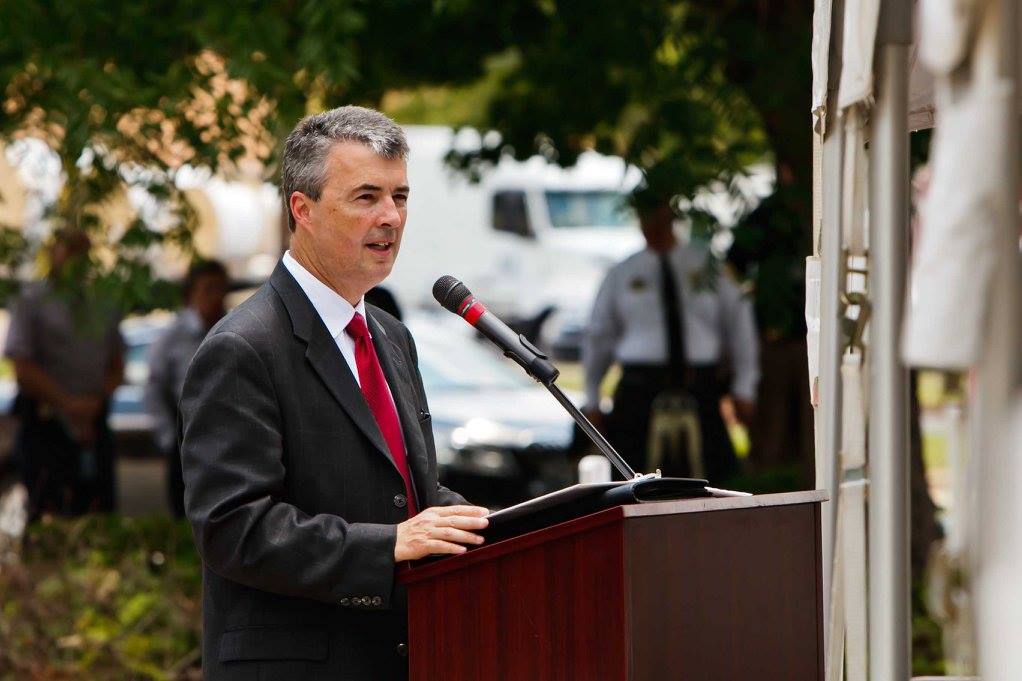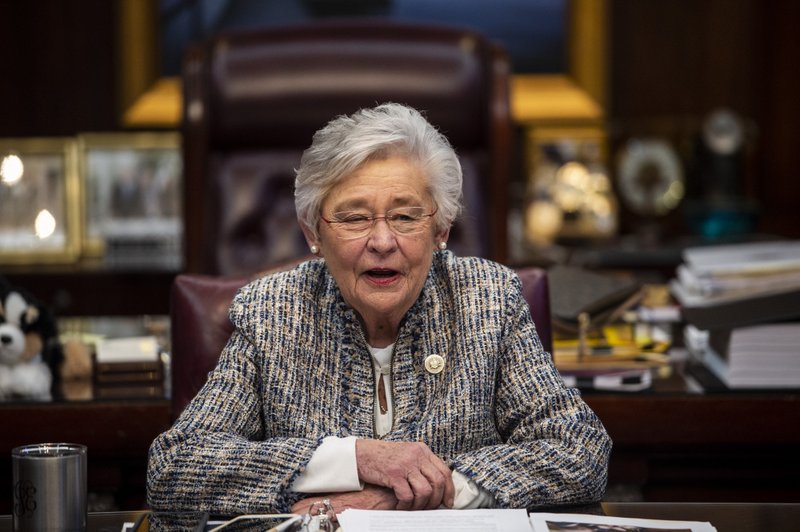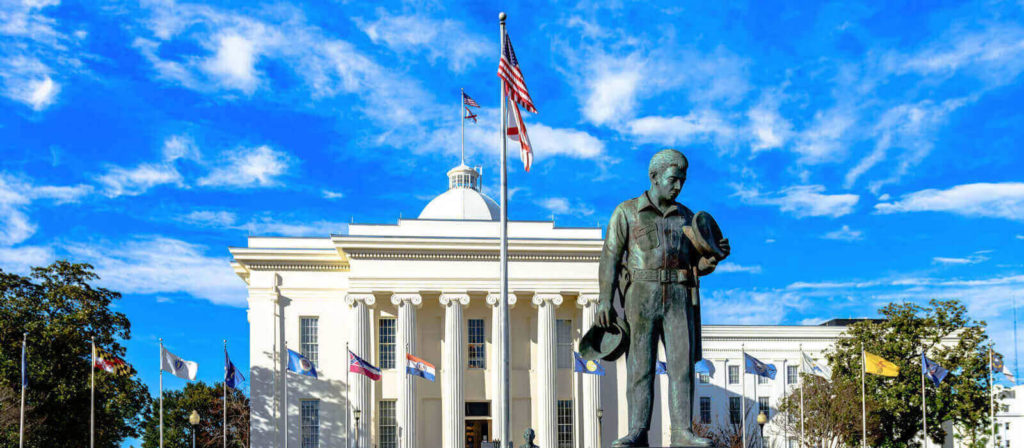Last in math: Alabama politicians look for ways to close gap

Alabama students for years have ranked at the bottom in a national math assessment. That has led one lawmaker to propose an overhaul in math instruction that would include more math coaches in schools, summer programs, and interventions. Eventually, fifth-grade students would need to show they were meeting certain math benchmarks to move to the sixth grade under the proposal, he said. Republican Sen. Arthur Orr, who chairs the state education budget committee, is working on the proposal for the legislative session that begins in January. He said it would be a math counterpart to the Alabama Literacy Act, which puts a similar promotion requirement on third-grade reading skills. “When you are 50th in the country you have no choice but to improve,” Orr, R-Decatur, said. He said the persistent lagging scores shows the need for the state to put a heavy emphasis on math. The proposed promotion requirement is likely to be controversial since lawmakers pushed last year to delay the reading promotion test because of the pandemic. Orr emphasized the math promotion requirement for fifth graders wouldn’t kick in until the latter part of this decade and only after students had been in the revamped math program since first grade, he said. Orr said he supports the retention component because students must have basic math skills — adding, subtraction, multiplication, division, and fractions — to function well in life or to be ready to take on advanced math. “You need to have a comfort level with those fundamentals,” he said. Alabama’s math performance in fourth and eighth grades ranked dead last among states in the 2019 National Assessment of Educational Progress, often called “The Nation’s Report Card.” Education officials have expressed concern that the pandemic led to learning losses. Test scores from last spring, after the pandemic interrupted classrooms, showed just 24% of fourth-graders and 14% of eighth-graders were considered proficient in math. Students took a new assessment last year called the Alabama Comprehensive Assessment Program, complicating comparisons with prior years, but officials said the test results were concerning. Alabama Gov. Kay Ivey told state Board of Education members this week that she is supportive of developing a math counterpart to the Alabama Literacy Act. “In the weeks and months ahead, I look forward to working with you to place the same sense of urgency on mathematics as we have rightfully placed on reading,” Ivey said Asked if the governor supports a requirement to hold back fifth graders who don’t meet math benchmarks, spokeswoman Gina Maiola said, “improving mathematics education in Alabama will require a comprehensive plan that is informed by all stakeholders. The 2019 Alabama Literacy Act will require third graders to meet reading benchmarks to be promoted to the fourth grade. The promotion requirement is set to take effect this spring. However, Ivey said she will ask lawmakers to delay the promotion requirement for one year. Orr said he is working with subject-matter experts on the proposal. “It’s no secret the state is last in math,” said Mark Dixon, president of the A+ Education Partnership. “We need a statewide commitment to improving math achievement.” Republished with the permission of the Associated Press.
Richard Shelby takes stance against vaccine mandates

Senator Richard Shelby has publicly expressed his views on the Biden Administration’s vaccine mandate. The mandate states that all employers with more than 100 workers require them to be vaccinated or test for the virus weekly. Alabama lawmakers have spent months fighting, this arguing it is government overreach. Gov. Kay Ivey called the mandates “outrageous” and also argued that vaccine mandates are “not the role of the government.” Last week, congressman Gary Palmer and several colleagues sent a letter to Doug Parker, the Assistant Secretary of Labor for Occupational Safety and Health, opposing the mandate. Attorney General Steve Marshall also filed a lawsuit last Friday challenging the federal-contractor vaccination mandate. Last week, state senator Arthur Orr spoke to Yellowhammer News, expressing his surprise that Shelby hadn’t already joined efforts to stop the mandate. In an interview, Orr stated, “[W]hat I also find interesting, Dale, is Senator Shelby has not signed on with a letter from Senator Lankford from the Midwest to be against the Biden mandate,” Orr said. “Senator Tuberville did. And I was surprised not to see Senator Shelby join his Republican Senate colleagues fighting back against these Biden mandates.” While other lawmakers have openly expressed their disdain for the mandates, Shelby had been relatively tight-lipped about his views until now. On Monday, Richard cleared up any misunderstandings, stating on Twitter, “Last week I proudly joined @SenatorBraun and other @SenateGOP colleagues in officially challenging President Biden’s vaccine mandate under the Congressional Review Act. This mandate violates our constitutional liberties and is federal overreach at its finest.” Shelby stressed the importance of vaccinations but emphasized individual choice. “While I urge people to consult with their doctor about getting vaccinated, I believe our individual freedoms and rights are of the utmost importance,” Shelby commented.
Alabama: Vaccine mandate will lead state employees to quit

Alabama argued in a lawsuit challenging the federal vaccine requirements that many university and state agency employees would leave their jobs if required to get vaccinated against COVID-19. Alabama joined with a coalition of other states in a lawsuit filed late Friday challenging the vaccine mandate on federal contractors. The lawsuit is part of Republican-led efforts to oppose the federal requirements. Alabama Attorney General Steve Marshall this week also urged businesses, universities, and state agencies to consider employees’ requests for medical and religious exemptions. “From the moment the White House tried to force this vaccine on to Americans, I have said that Alabama is standing strong against it and that the way to stop this is to go to the courts,” Alabama Gov. Kay Ivey said in a statement this weekend. Alabama has one of the lowest vaccination rates in the country with just 44.7% of the population fully vaccinated, compared to a national average of 58%. In announcing the rules in September, President Joe Biden said the unvaccinated were hindering the nation’s recovery. “Without vaccination requirements, we face endless months of chaos in our hospitals, further detrimental impacts on our economy, and anxiety in our schools. With them, we will accelerate our path out of the pandemic,” the White House wrote on a page about the requirements. In the lawsuit filed late Friday, Alabama claimed that many university and Alabama Department of Public Health employees would “likely quit their jobs rather than receive the COVID-19 vaccine as a condition of further employment.” Even as the state sues, Auburn University and the University of Alabama campuses have said employees must get vaccinated by Nov. 8 because the campuses all are federal contractors. Vaccine mandates have already been the subject of litigation. The Supreme Court has rejected an emergency appeal from health care workers in Maine to block a vaccine mandate that went into effect Friday. Many of Alabama’s public universities and some state agencies have received notice that they are subject to the federal-contractor vaccination mandate, according to the attorney general’s office. Marshall issued an advisory this week instructing Alabama-based employers, including public university employers, to liberally interpret “in favor of the employee” any requests for medical and religious exemptions to the vaccination mandate. When an employee requests a religious exemption, Marshall said state agencies should not “inquire into the validity of an employee’s religious beliefs, including the motives or reasons for holding the belief.” That deviates from federal guidance where federal employees are asked to participate in an interactive process and bring documentation supporting the request for an exemption. Twelve bills related to vaccinations were introduced in the ongoing special session on redistricting, but key lawmakers said they do not expect to debate the proposals before the winter regular session. House Speaker Mac McCutcheon said Republicans want to fight the mandate but suggested it would be counterproductive to pass legislation that couldn’t impact federal law. The U.S. Constitution’s supremacy clause is clear that federal law overrides any conflicting state laws. “The last thing we want to do is have a knee-jerk reaction on something that may sound good politically, but in substance what does it do. You haven’t done the people any justice by doing it that way,” McCutcheon said. Businesses with federal contracts could be placed in an uncomfortable situation if torn between conflicting state and federal mandates. Some current mandates — such as a hospital requiring doctors to get yearly flu shots — could be impacted by the proposed bills. Republican Sen. Arthur Orr of Decatur said there will be ongoing discussions about how to craft legislation that could help the state litigation. Orr said he is hearing more and more stories of people faced with losing their jobs because they are not vaccinated. “It’s been tragic,” Orr said. Republished with the permission of the Associated Press.
Steve Marshall advises Alabama federal contractors not to investigate employees seeking vaccine exemption

Alabama Attorney General Steve Marshall, along with Republican state legislative leaders and the state Personnel Office, have issued an advisory regarding the COVID-19 vaccine mandate for federal contractors. The advisory urges federal contractors in the state to not investigate employees seeing a religious exemption to the COVID-19 vaccine. The letter states, “Alabama-based employers, and particularly public university employers, should liberally construe—in favor of the employee—any exemption sought by an employee for medical or religious reasons. In reviewing an employee’s request for a religious exemption, employers should not inquire into the validity of an employee’s religious beliefs, including the motives or reasons for holding the belief.” The letter was co-signed by State Personnel Department Director Jackie Graham, Mac McCutcheon, Greg Reed, Danny Garrett, Arthur Orr, Steve Clouse, and Greg Albritton. The letter comes after the University of Alabama and Auburn University said they will require all federal employess to be vaccinated by December 8. The schools issued a joint statement last week saying, “As federal contractors, and like most higher education institutions, the University of Alabama System campuses – including The University of Alabama, the University of Alabama at Birmingham, and the University of Alabama in Huntsville – and Auburn University must comply with the executive order and accompanying guidance, unless that executive order is withdrawn or modified.” “Failure to comply will place our universities in jeopardy of losing hundreds of millions of dollars received through federal contracts and awards, as well as thousands of jobs funded by those dollars.” Marshall also added that any public university employee that is denied a reasonable request for exemption should contact the Civil Division of the Attorney General’s Office. The letter explains, “No employee of a public university in Alabama, nor any employee of Alabama state government, will forfeit their livelihood as a result of the federal government’s flagrant overreach.” “The Attorney General’s Office, working with the State Personnel Department, will assist in transferring these employees into other public university/state employment,” the letter continued. Marshall also added that the Attorney General’s Office is preparent a lawsuit to fight the mandate. Marshall stated on Twitter, “Alabama-based employers should liberally construe – in favor of the employee – any exemption sought by an employee for medical or religious exemptions with regards to vaccine mandates. My office is preparing its lawsuit to challenge the federal government.”
Justin Bogie: State government takes more revenue from citizens than ever before

In 2021, Alabama’s state government took more money from taxpayers than ever before. The big question is, what will state government leadership do with it? It should be used to provide tax relief to citizens and businesses, not to continue to grow government. According to end of fiscal year, 2021 data from open.alabama.gov, the Education Trust Fund, and General Fund budgets took in a whopping $11.2 billion in revenue last year. That’s nearly $1.2 billion (11.6%) more than the state collected in the fiscal year 2020. Don’t forget, this is on top of nearly $4 billion that has and will continue to flow directly to state government because of a series of federal stimulus bills designed to help states recover from the COVID-19 pandemic. The state’s Legislative Services Agency recently estimated that almost $47 billion total has been given to the state from the federal government over the past two years. That includes money such as direct payments to individuals, payments to county and local governments, the Paycheck Protection Program for businesses, and expanded unemployment benefits, among others. While it is good that Alabama’s economy has seen a swift recovery from the pandemic, especially compared to states with more restrictive environments, much of that growth is coming directly out of your wallet. Individual income tax receipts rose by $631.6 million last year, an increase of 15 percent. Sales tax receipts rose by nearly 15 percent, or $372 million. The state’s recently implemented online sales tax had another big year, adding $72 million more in revenue, almost 40 percent growth. And it wasn’t just individuals bearing increased tax burdens. According to open.alabama.gov, corporate income tax receipts to the Education Trust Fund increased by 72.6 percent in 2021, more than $355 million in new revenue. While the numbers are important, don’t get lost in them. The point is that while the state is taking in record amounts of revenue, you, the citizen, as well as businesses that are the life-blood of the economy, are in turn paying more than ever before. 2021 is not an anomaly. Since the end of the Great Recession, Alabama’s economy has generally seen steady growth. Since fiscal year 2019 state government has enacted record-high budgets and seen more revenue each year. But what have lawmakers done for citizens and the business owners of Alabama? Instead of looking for ways to return their money to them, government has looked for new ways to tax and spend even more of your money. In 2019 the Legislature and Governor Kay Ivey enacted a gas tax that is projected to bring in over $300 million in new revenue this year. Lawmakers also allowed for the tax to be raised by an additional $.01 every two years without ever having to take another vote on the issue. The 2021 Regular Legislative Session was dominated by two other issues that are in no small part about bringing in more revenue. The Legislature was successful in legalizing medicinal marijuana, which could bring in tens of millions of dollars in sales tax revenue in the future. While combined gambling and lottery legislation failed again, its potential to bring hundreds of millions of dollars in annual revenue to the state means that it will likely come before lawmakers again. When asked recently about the latest revenue windfall, Senate education budget committee chairman Arthur Orr, R-Decatur, identified contributing to the education budget’s stabilization fund, teacher pay raises, bonuses for retired educators, and tax cuts for retirees and low-income families as priorities. While tax cuts should be the top priority, why not find a way to provide tax relief that will benefit almost all Alabamians, such as eliminating the sales tax on groceries? Alabama’s corporate income tax rate is higher than many neighboring states and is highly susceptible to changes in the federal tax code. Why not lower the rate and change the deduction structure so that Alabama’s business environment is more competitive with other southern states? Pay raises and bonuses are the default that lawmakers always seem to go to when there is extra money. This mentality is why state government continues to grow. When the state collects more revenue than projected, that means that it took more from your pocket than it needed. That money should be given back to you, not used to expand state government. Justin Bogie is the Senior Director of Fiscal Policy for the Alabama Policy Institute.
Steve Flowers: Privatization of ABC stores fails again

Alcohol was on the minds of many Alabama lawmakers this year as the legislature considered an abnormally high number of alcohol-related bills. Several of the bills passed. Most notable was legislation that made it possible for Alabama businesses to deliver beer, wine, and liquor to customers’ homes, and separate legislation that allows state residents to order wine directly from wineries, even if those producers are out of state. One piece of legislation that did not pass was Senator Arthur Orr’s perennial bill to privatize ABC liquor stores. There are a number of reasons for Alabamians to be thankful this legislation did not pass. First and foremost, the State’s General Fund Budget will benefit from the failure of this legislation. The proposed legislation would have resulted in higher prices, lost tax dollars, lost jobs, and less enforcement of alcohol laws. For example, last year alone, the Alabama Alcoholic Beverage Control Board contributed $314 million to the State General Fund and state agencies, according to information provided by the ABC Board. This is from taxes and the markup on liquor. If you privatize liquor sales and close the ABC stores, much of this revenue goes away, even after considering the taxes generated by private stores. An analysis of the ABC Board shows a net loss of $95 million a year. Another reason to be thankful the legislature refused to privatize liquor sales is the fact that hundreds of state jobs were saved by the failure of this legislation. The ABC stores and the state warehouse are run by more than 875 state employees. Most would have lost their jobs, their health insurance, and their retirement had the bill passed. These employees go through hours of training to keep stores safe and prevent the sale of liquor to minors. Dollars and cents aside, if you look at this from a health and safety standpoint, Alabama is better off with state-regulated ABC stores controlling liquor sales than private retailers. Speaking of private liquor stores, you can expect a big jump in their numbers. If you consider all the grocery stores, convenience stores, and other retail chains, such as Walmart and Target, along with the additional package stores that will pop up if liquor sales are privatized, liquor outlets in the state could increase from around 850 currently to more than 2,100. While there would not literally be a liquor store on every corner, it sure might feel like it. Furthermore, studies and common sense indicate that the more stores you have selling liquor, which will come with privatization, the more liquor you are going to sell. More sales mean more consumption, and more consumption means more health and safety problems. Alcohol is not just another commodity, and buying it should not be as easy as buying milk and bread. Data from the CDC says 95,000 people die annually due to excessive drinking. No drug kills as many people each year as alcohol. The good news is that under our current alcohol control system, Alabama fares much better than most states when it comes to alcohol consumption. As a state, we are among the lowest in liquor consumption and among the highest in revenue from liquor taxes. Lastly, even if you look at privatization from a consumer’s standpoint, it does not benefit Alabamians financially to privatize liquor sales. As anyone who has gone into an ABC store and a private package store knows, private store prices are much higher. If you close the ABC stores, Alabamians are only left with the higher prices of private stores. While the legislation to privatize liquor sales was well-intentioned from a philosophical standpoint, we should be thankful our legislature looked at the bigger picture. The state has little to gain but a lot to lose by closing ABC stores. The ABC Board is a valuable state agency, and the ABC stores provide a great benefit to our state in tax revenue, hundreds of state jobs, and lower prices for Alabamians. I have known ABC Board Administrator Mac Gipson a long time. I know he runs a tight ship and it would be a shame to wreck it, so let’s hope privatization of liquor sales is dead for good. See you next week. Steve Flowers is Alabama’s leading political columnist. His column appears in over 60 Alabama newspapers. He served 16 years in the state legislature. Steve may be reached at: www.steveflowers.us.
Steve Flowers: Prison issue unresolved

There were two major issues not resolved during the just-completed regular legislative session. Gambling and prisons were left on the table and up in the air. It is foolish to not address a resolution to get some revenues for the state from gambling which currently exists in Alabama. However, it is not imperative that the problem be solved. The prison problem is another question. It has to be addressed. The federal courts will take over Alabama’s prisons and tell the governor and legislature what to do to alleviate the crisis. The federal courts will win that fight every day of the week. They will act and give the legislature the bill for the expenses. It is happening now in California, and the same scenario happened in Alabama five decades ago during the George Wallace versus Frank Johnson era. Judge Johnson prevailed and told Alabama what to do with prisons and sent them the bill. The legislature, governor, and U.S. Justice Department agree that Alabama has to have three new prisons to alleviate unconstitutional overcrowding. The governor proposed privatizing leasing three new men’s prisons. Governor Kay Ivey and the Alabama Department of Corrections proposed a lease project as the solution to replace many of Alabama’s aging overcrowded and understaffed prisons. In February, Ivey signed a 30-year lease agreement for two of the three new prisons unilaterally, without legislative authority or input. The national firm, Core Civic, was chosen to receive the lease agreement and to build new prisons in Elmore and Escambia counties. However, the privatization plan has been thwarted by the Private Prison Firm’s inability to garner financing. In May, Bloomberg News reported that all three banks that were to finance the venture were backing out completely. The lease plan expired on June 1. Therefore, the route that legislative leaders prefer is that the state owns the prisons and pass a bond issue to pay for them. Legislative leaders, primarily and importantly Finance Committee Chairmen Steve Clouse of Ozark and Arthur Orr of Decatur, believe that there needs to be a Special Session called by Governor Ivey to address the building of three new men’s prisons and floating a bond issue to pay for them with the state owning the prisons. Representative Clouse has brought up another valid reason for there to be a Special Session regarding prisons. The state received guidelines in the waning hours of the session from the Treasury Department on using the four billion dollars Alabama is expected to receive for state and local governments under the American Rescue Plan passed by Congress. The legislature will be the appropriator of that money. It may well could be used by the state for prisons. Another factor that will be on the table are the locations of the prisons. A change from the lease plan to a prison bond issue would probably alter the locations to land already owned by the Department of Corrections. This land is available and was actually purchased adjacent to the current prisons at the time new prisons were last built over three decades ago during the last Wallace Administration. This land around the prisons was purchased for future expansions. During the planning, a blue-ribbon study commission was hired to determine the best locations for the prisons. The commission suggested that they should be near the metropolitan areas of the state. Wallace looked at the proposal and said that looks good, but I think we will probably put those prisons in Barbour County. Gov. Wallace’s home county was Barbour. The bottom line is that the prison lease plan proposed by the governor is dead. The other given is that new prisons have to be built to address a myriad of problems that have been outlined in the Justice Department suit. This issue has to be addressed. Therefore, it looks imminent that at least two Special Sessions are in store for this year – one on reapportionment of legislative and congressional districts and one on prisons. We lost our oldest past governor, Gov. John Patterson, on June 5. Gov. Patterson passed away at his ancestral home at age 99, surrounded by his family. Patterson was governor from 1959-1963. He defeated Gov. Wallace in the 1958 Governor’s Race, which featured a field of 14 candidates. Patterson was attorney general of Alabama prior to being elected governor. See you next week. Steve Flowers is Alabama’s leading political columnist. His column appears in over 60 Alabama Newspapers. Steve served 16 years in the state legislature. Steve may be reached at www.steveflowers.us.
Steve Flowers: Session ends, gambling left on the table

The 2021 Legislative Session is in the books. I would rate it a success. When you pass budgets that are balanced, any session is a success. In fact, the only constitutional mandate given to the legislature is that they pass the two budgets. The amazing revelation that is almost difficult to comprehend is the fact that both the General Fund and the Educational Fund budgets were not only status quo but were flush with growth coming out of a year of the COVID pandemic. State employees and teachers both received raises in the budgets. Alabama is one of the few states in America that has not been devastated financially by the pandemic. A lot of credit for this good fiscal stability goes to the Chairmen of the Budget Committees in both the House and Senate. They have worked and strived diligently to pass conservative budgets with reserve accounts that have allowed the state to avoid rainy days. The state owes a debt of gratitude and a tip of the hat to House Budget Chairmen Bill Poole (R-Tuscaloosa) and Steve Clouse (R-Ozark) and Senate Finance Chairmen Arthur Orr (R-Decatur) and Greg Albritton (R-Escambia). The Legislature dealt with a lot of high-profile issues. Not the least of which was the perennial issue of allowing doctors to prescribe medicinal marijuana for pain for their patients. This prescription has been allowed for years in many states. Now, Alabama doctors will be able to prescribe this medication to their patients. The gambling issue dominated the entire session. The state Senate passed the gambling proposal to send to the people for a vote. However, it failed in the House of Representatives. It is a Constitutional Amendment and therefore needs 21 votes in the 35-member State Senate and 63 votes in the State House of 105 member representatives. It does not even go to the governor for a signature but goes straight to the ballot. The governor is very much for this initiative. However, it probably needs to be dealt with in a special session for it to pass. Governor Kay Ivey needs to really promote the issue in a special session where it is the only issue dealt with and focused on. She has plenty of time. The Amendment, if approved by legislators, is not set to be voted on until the November 2022 General Election. This proposed constitutional amendment is a very all-encompassing gambling plan. It institutes a lottery, authorizes sports betting, and legalizes casinos around the state. It is a constitutional amendment that will also be exact and detailed and with authoritative gambling policy enforcement procedures. This regulation of gambling has been needed for years because we already have gambling in Alabama. The new state gambling regulatory commission would oversee the lottery, as well as the five existing casinos in Macon, Mobile, Greene, and Jefferson counties, and one yet to be determined in Northeast Alabama. This new location would be in the pristine Northeast Alabama mountains and would be given to the Poarch Band of Creek Indians. It would have the potential to be a destination tourist attraction. The Poarch Creek casinos would continue to be regulated by federal statutes, but the state would be enabled to enter into a compact with the tribe for Class III table games. All lottery revenue would be directed to education, including scholarships for higher education and trade schools and a loan forgiveness program for graduates who locate back in Alabama. The annual revenue from casinos and sports betting would be divided for several uses. Almost 50% would be up to the legislature to appropriate toward capital or other non-recurring expenses. Forty percent would be earmarked for “enhanced health care services,” and 10% would be divided among counties and cities for “Capital or other non-recurring expenses.” Under the legislation, for all gambling revenue, up to 5% would be set aside for initiatives to help problem gamblers. This legislation pretty much tracks the recommendations of Governor Kay Ivey’s proposal and actually does not even require her signature. She was very prominently lobbying for its passage and will endorse its ratification by Alabama voters. It will reap a significant amount of revenue for the State of Alabama. You may very well see it come up again this year in a special session. See you next week. Steve Flowers is Alabama’s leading political columnist. His weekly column appears in over 60 Alabama newspapers. He served 16 years in the state legislature. Steve may be reached at www.steveflowers.us.
Alabama governor signs ‘vaccine passport’ ban

Gov. Kay Ivey on Monday signed legislation banning so-called vaccine passports as Alabama becomes the latest state to try to prohibit proof of a coronavirus vaccination to enter a business, school or event. The legislation by Republican Sen. Arthur Orr of Decatur would prohibit government entities from issuing “vaccine or immunization passports” or other “standardized documentation for the purpose of certifying immunization status.” The bill makes exemptions for child immunization forms and “other applicable state law.” The new act would also prevent people from being denied entry to businesses, universities, and state agencies if they have not been vaccinated for COVID-19. However, the legislation does not specify any penalty for violations. The Alabama House of Representatives last week voted 76-16 for the bill after stripping language that would have exempted health offices and nursing homes and adding language saying universities cannot require students to have vaccines developed after Jan. 1, 2021. The Senate approved the bill earlier in the session by a 30-0 vote. “I am supportive of a voluntary vaccine and by signing this bill into law, I am only further solidifying that conviction,” Ivey said in a statement released by her office. “I made the choice to get the COVID-19 vaccine and glad for the peace of mind it brings. I encourage any Alabamian who has not gotten their shot to roll up their sleeves, and if you have questions, consult with your health care provider,” she said. Orr said the aim of the bill is “to prevent the creation of a discriminatory society based on vaccination status.” Orr said there are exemptions in the bill as to not interfere with school immunization cards and other vaccinations forms. A spokesman for the Alabama Department of Public Health said the new act does not appear to prohibit the issuance of vaccination cards — such as those currently issued for COVID-19 vaccinations — by the state as well as other vaccine providers. “Personal vaccination records provided by ADPH are not to serve as a passport to serve as a means of entry into any establishment or place of business,” Ryan Easterling, a spokesman for the Alabama Department of Public Health wrote in an email. Republicans in several states have backed bans on so-called vaccine passports even though they are not in widespread use in the U.S. Some Alabama House Democrats last week criticized the broad wording of the bill and said it was about politics rather than public health decisions. “When does it become your right to pass on your illness on to someone else?” Rep. Mary Moore, D-Birmingham, said. Rep. Merika Coleman, D-Pleasant Grove, said that Republicans are choosing to dictate to businesses what they can and can’t do. The idea of so-called vaccine passports is to have a document that shows you were vaccinated against COVID-19. Federal officials say there are no plans to make them broadly mandatory, but some Republican governors have issued orders barring businesses or state agencies from asking people to show proof of vaccination. Hawaii has a limited vaccine passport program for inter-island travel that allows people who received their vaccine shots to skip testing and quarantine rules for travel between the islands. New York officials have launched a digital app New Yorkers can download to show proof of vaccination or a negative COVID-19 test. Republished with the permission of the Associated Press.
Email insight: Alabama Arise calls to reform abusive civil asset forfeiture practices

As the end of the 2021 legislative session ends, Alabama Arise shared an email in support of SB210. Sponsored by Sen. Arthur Orr, SB210 would reform the civil asset forfeiture process. Alabama Arise released the following email: The 2021 Regular Legislative Session ends Monday, and Sen. Arthur Orr’s SB 210 hangs in the balance. This bill would significantly reform Alabama’s abusive civil asset forfeiture processes. There’s a good chance the House will consider the bill for final passage on the final day. Alabamians deserve to have their personal property protected from seizure when they haven’t been convicted of a crime. But under civil asset forfeiture, people can lose their property, including their only vehicle or their home, without being convicted or even arrested. And law enforcement has an incentive to seize property because agencies are allowed to keep the property they take. The right to keep your possessions is vital to Alabamians’ ability to build economic security. Orr sponsored a bill to eliminate civil asset forfeiture two years ago, but that bill was watered down to a mere reporting bill at the urging of law enforcement. And even then, state law enforcement agencies have dragged their feet on implementation and have refused to include racial demographic reporting requirements to track likely disparate use of forfeiture against Black Alabamians, as has occurred in other states. It’s time to end this abusive, unfair practice.
Kay Ivey signs bill enacting pay raises for teachers and state employees

Kay Ivey on Tuesday signed two important pieces of legislation: Senate Bill 188 and House Bill 320. These two bills raise teacher and state employee pay. Governor Ivey proposed a two percent pay increase for the state’s K-12 and higher education officials, as well as state employees during her state of the state address this year. Ivey stated, “If this pandemic has taught us anything, it reinforced what we already knew – teachers are vital to our student’s learning, and our state employees keep government services operational for the people of Alabama. I am proud to sign this well-deserved pay increase to our educators and state workers. I commend Education Trust Fund chairmen Sen. Arthur Orr and Rep. Bill Poole, General Fund chairmen Sen. Greg Albritton and Rep. Steve Clouse, along with the entire Alabama Legislature for their hard work and for approving this raise. It is both fiscally wise and simply the right thing to do after a hard year. “As we head into the summer months, and the pandemic continues to ease, we need to do everything we can to support our teachers and educational support staff to ensure that we can fully return to classrooms in the fall. Alabama schools have shown the rest of the nation that it is possible to be safely back in the classroom, while carrying on the important work of providing Alabama’s children a chance for a promising future. I look forward to continually offering my support to ensure that Alabama students remain on track and moving ahead.” She posted on Twitter, “I just signed Senate Bill 188 & House Bill 320 into law, making teacher & state employee 2% pay raises official!” I just signed Senate Bill 188 & House Bill 320 into law, making teacher & state employee 2% pay raises official! Read my full statement here: https://t.co/g8cpiR5zzA #alpolitics #TeacherAppreciationDay #PublicServiceRecognitionWeek — Governor Kay Ivey (@GovernorKayIvey) May 4, 2021
Lawmakers fast-track COVID-19 liability protection bill

The Alabama Senate on Thursday swiftly approved legislation that would provide businesses and others protection from liability in coronavirus-related lawsuits, provided the entities were taking precautions to limit the spread of the virus. Alabama Gov. Kay Ivey and GOP lawmakers had named the bill a priority for the first two weeks of the session. The bill passed without debate on a 27-1 vote. It now moves to the Alabama House of Representatives. The bill by Republican Sen. Arthur Orr could provide immunity for businesses, health care providers, and others from certain damages claimed by individuals who allege they contracted or were exposed to the virus. Orr said Wednesday that the bill would give protection to companies, churches, and other entities from virus-related claims only if they were following appropriate precautions. “A business that chose to ignore that guidance and did not require, say like masks in their workplace or took no steps to try to limit the interaction of their workers being very close together, then they would not have protection in that safe harbor,” Orr said. Robyn Hyden of Alabama Arise, an advocacy group for low-income people, urged the Senate Judiciary Committee on Wednesday to take more steps to protect and help workers. “Front-line workers deserve access to health care, hazard pay, and social support programs if they are unable to work in a high-risk field. Too many workers are being driven into risky working conditions with no alternatives,” Hyden said. ___ This story has been edited to correct that the bill was passed by the full Senate, not a committee. Republished with the permission of the Associated Press.


